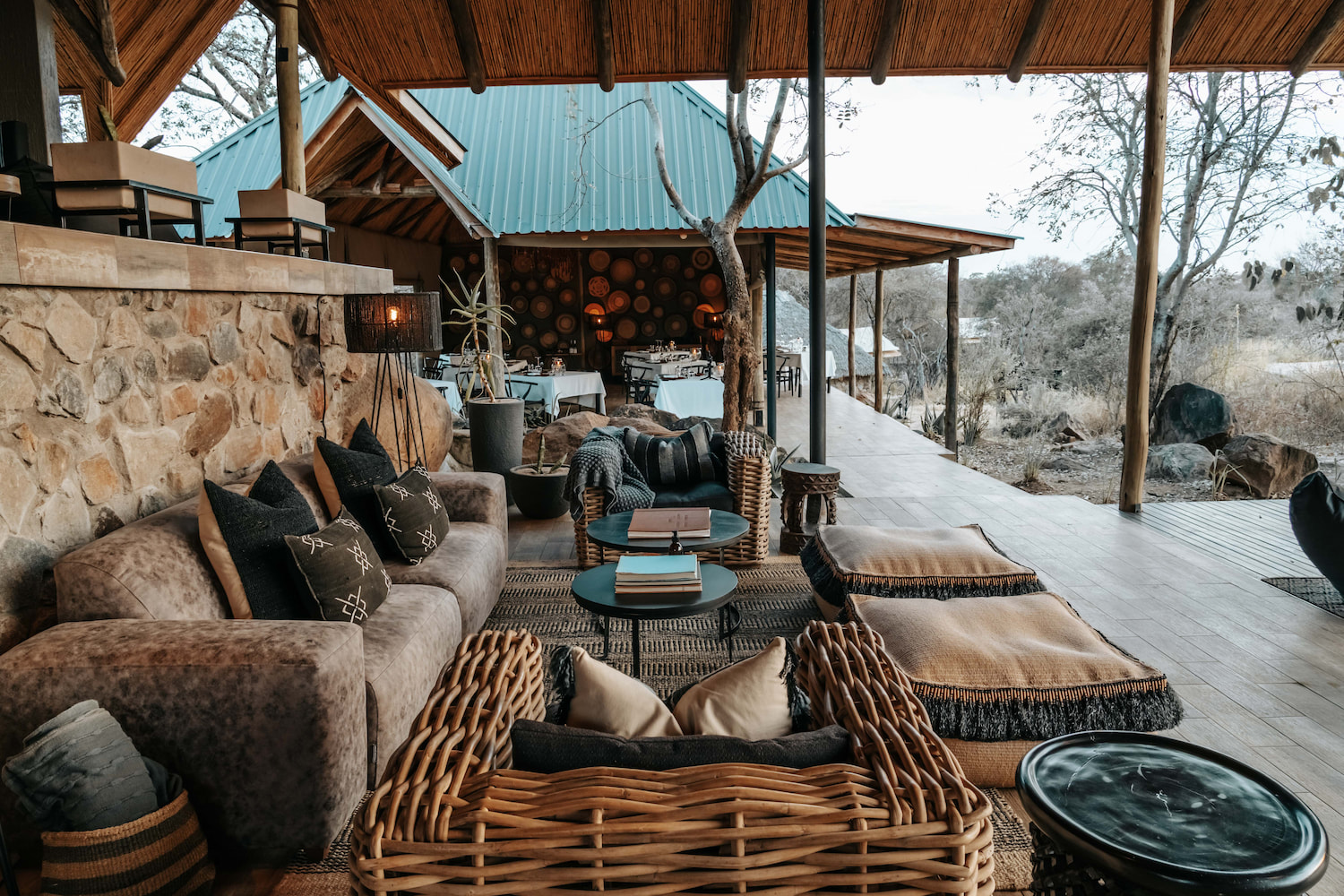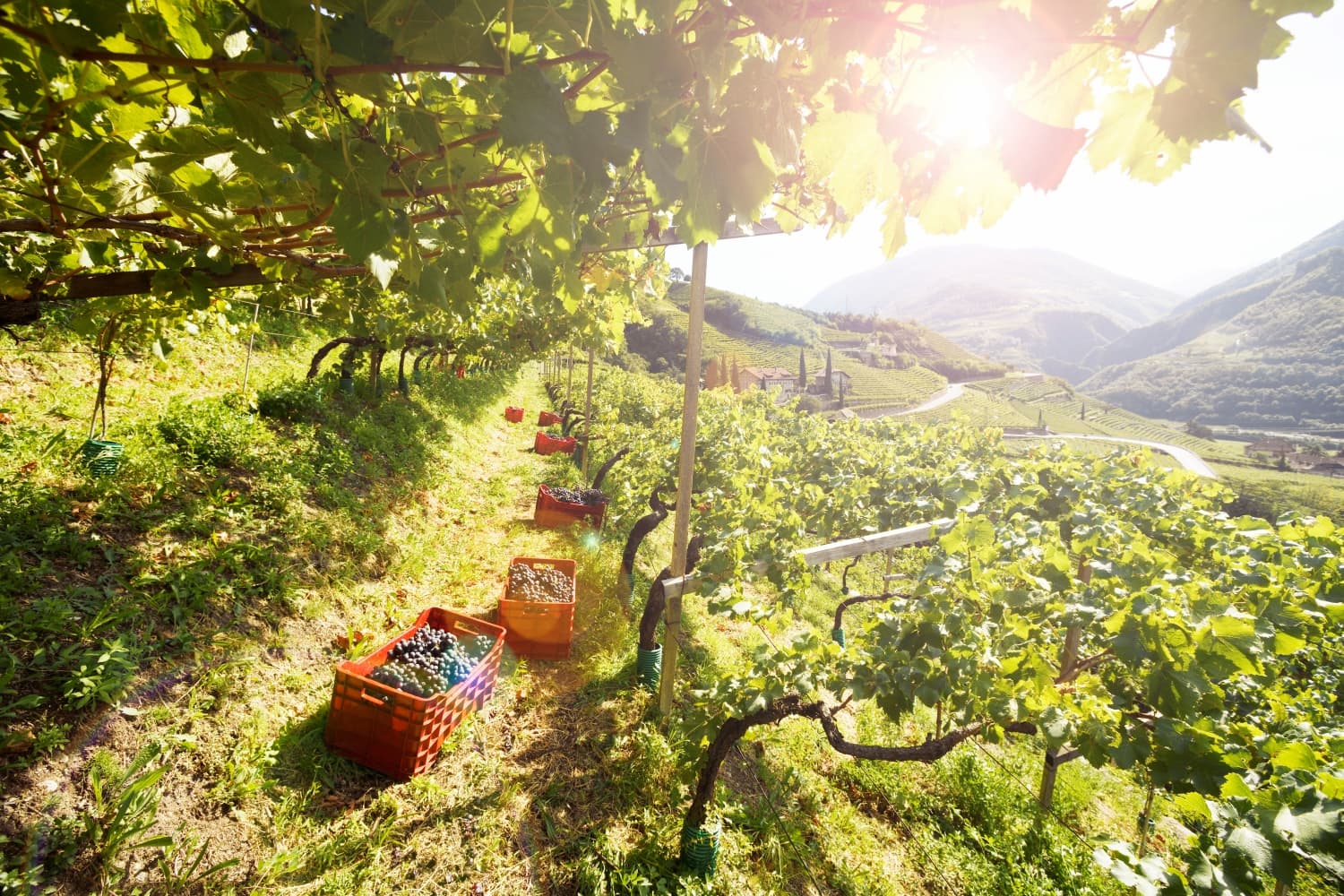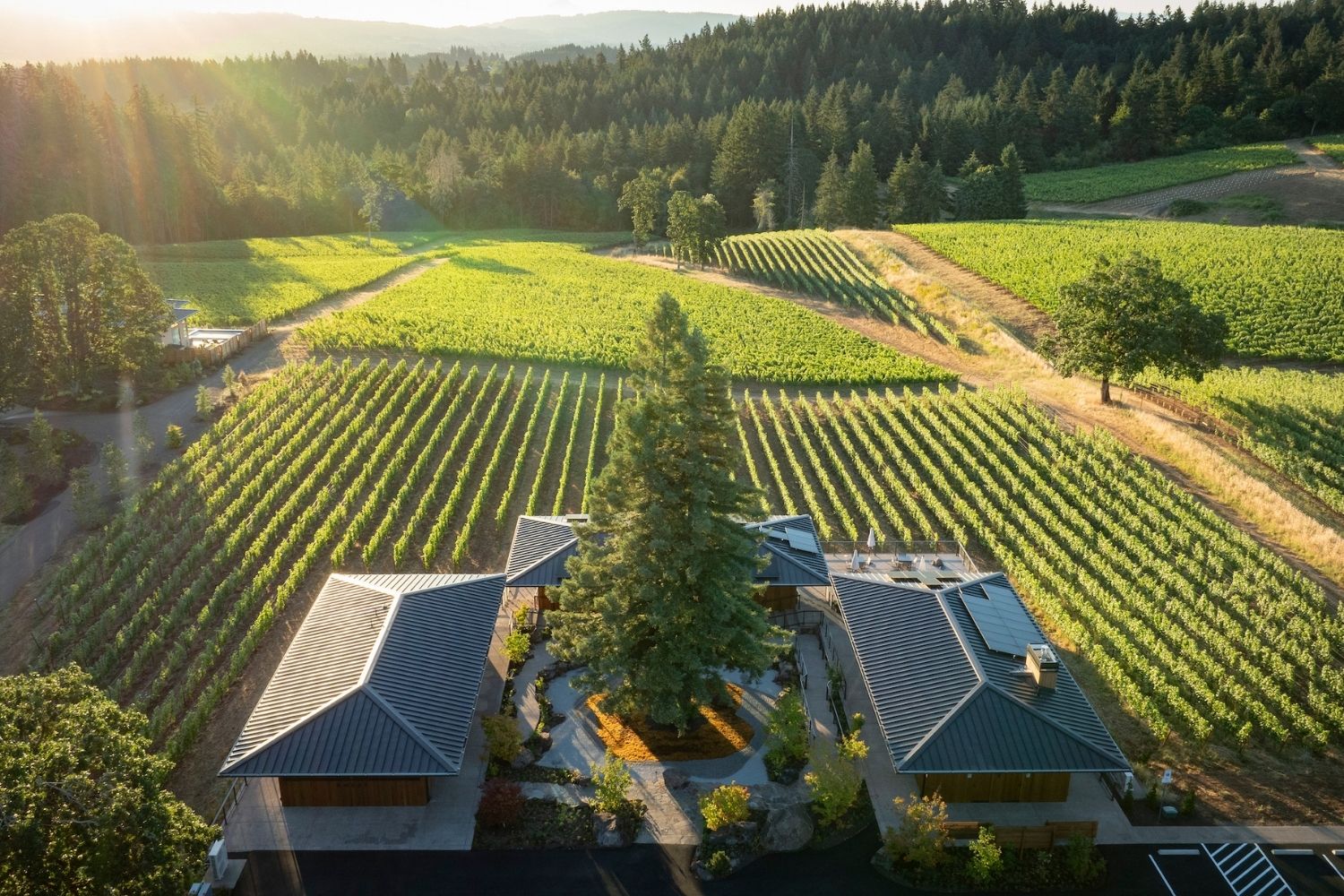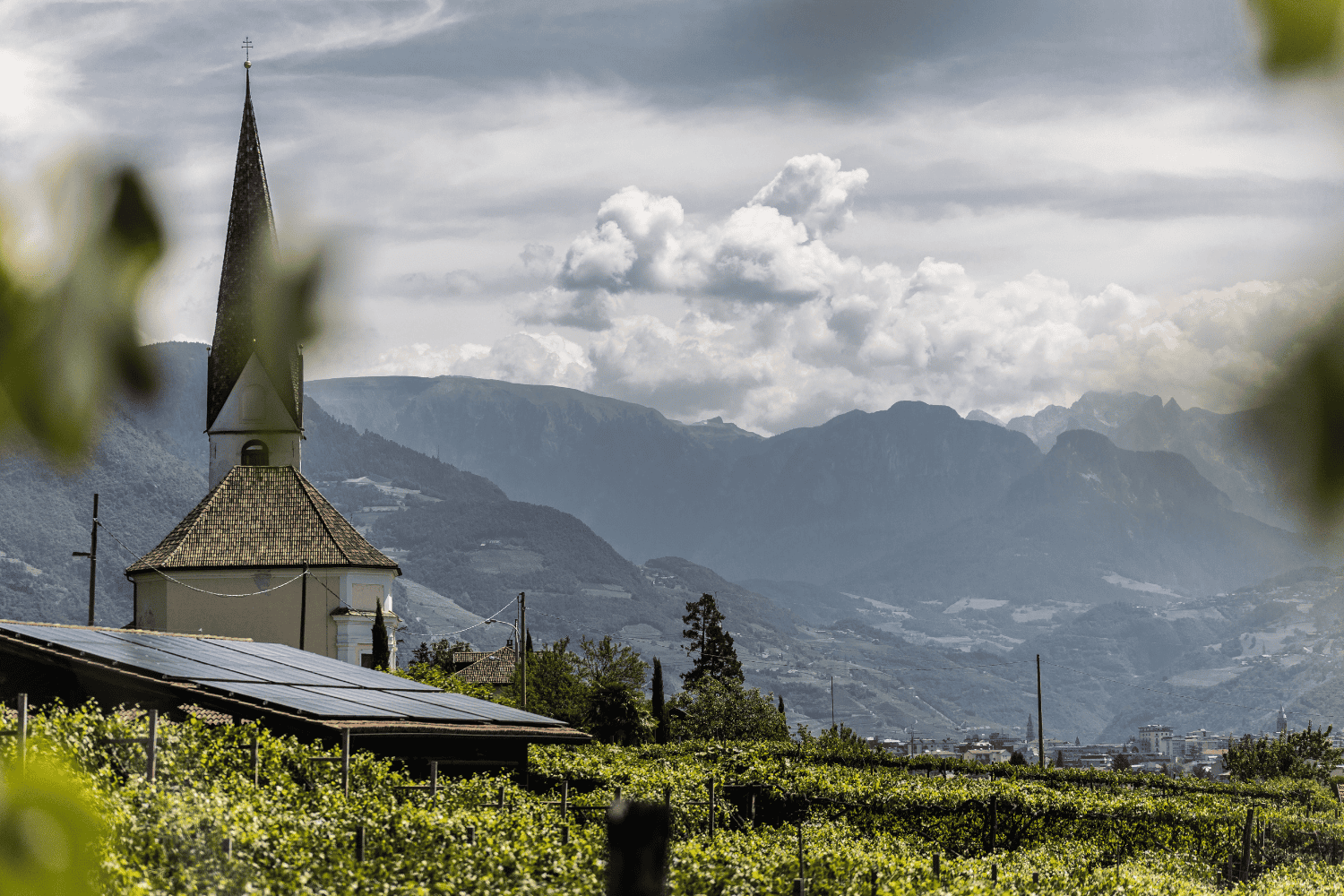North Stars:

Community Support

Wildlife Ecosystems

Energy Efficiency
“Safari should feel personal, not packaged — like the night a leopard left her cub among the rocks beside the lodge.”
Partnership
One morning at Nimali Tarangire, a herd of elephants surrounded the lodge. In their midst, a mother elephant labored until giving birth between two guest rooms. A calf slid from her womb to the ground, motionless at first. A minute later, its legs thrashed, the animal fighting to its feet for the first time. The guests watched in awe.
This type of encounter says more about the Nimali group of lodges than any brochure could. The company, founded by Harjot Mann and Premjeet Brar, dates back to their families which settled in East Africa in the late 1890s. “Our families have been here for generations,” says Brar. “We wanted to build something that reflected that history and our responsibility to the land.”
Today Nimali runs three lodges — Tarangire, the Serengeti, and the northern Mara — each deliberately small. “We didn’t want to create something corporate,” says Mann. “Safari should feel personal, not packaged.”
That philosophy shapes everything from the design of the camps to their operations: lodges run fully on solar power, follow a strict no-plastics policy, and source produce from nearby farms. Staff rotate between Tarangire, Serengeti, and Mara so that knowledge and standards carry across the circuit. “We think in decades, not seasons,” says Brar. “That’s the only way conservation makes sense.”
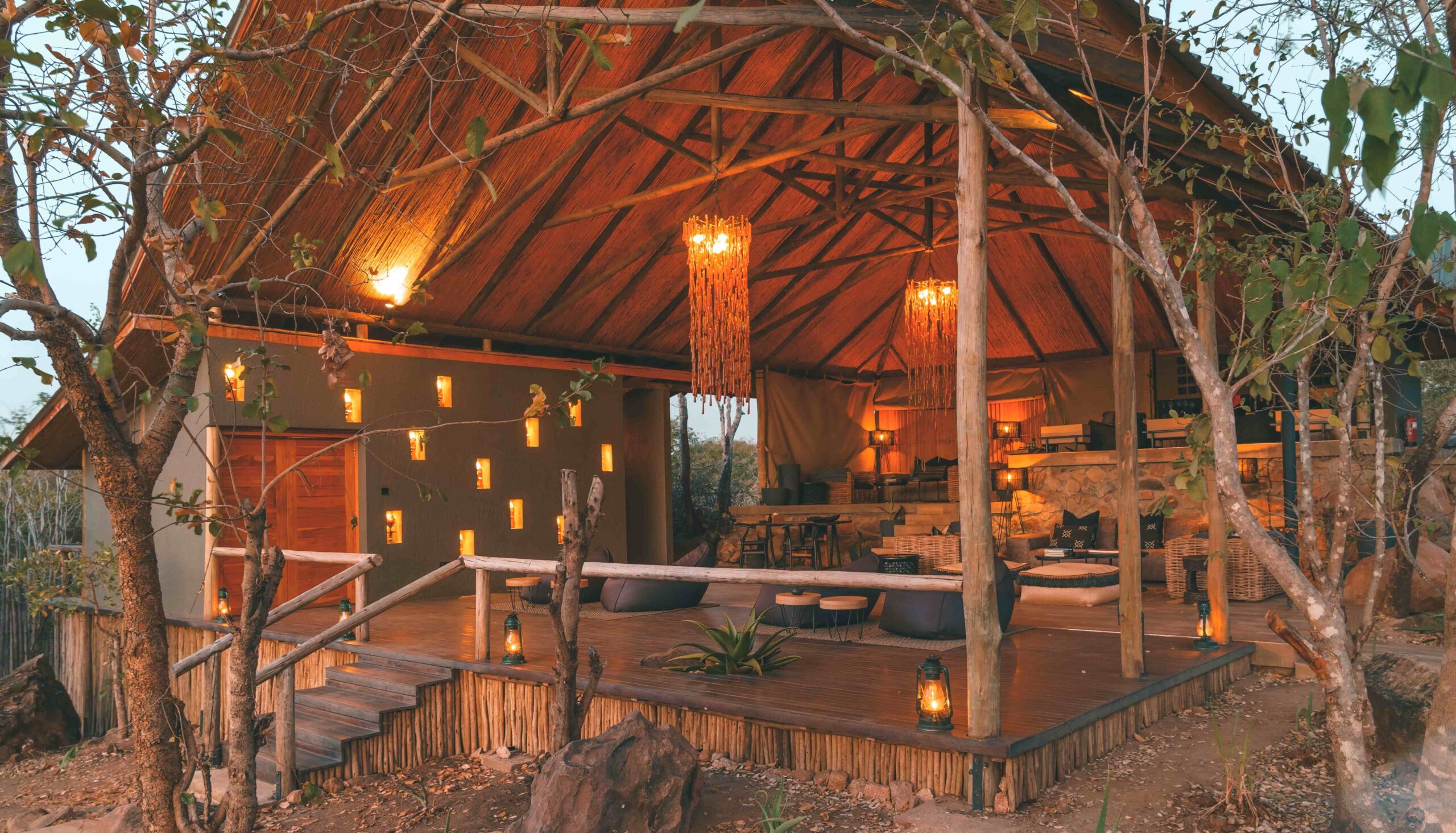
Tarangire Lodge. Courtesy of Nimali Africa.
Tarangire: Elephants and Baobabs
For travelers visiting all three properties, the circuit begins in Tarangire, where baobabs rise like sentinels and wildlife crosses the dry riverbeds. “Tarangire was our starting point,” says Brar. “It gave us the chance to create a private conservancy that blends into a wildlife corridor, supporting conservation beyond the park’s borders.”
At dawn, staff set tables for breakfast in the sandy riverbed. The smell of wild sage drifts on the breeze, mingling with the chatter of baboons and the call of hornbills. When the sun climbs, guests return to camp. Some swim in the infinity pool that overlooks a waterhole. Others retreat to the hide, a room cut into the earth where wildlife can be observed up close and unseen.
That intimacy makes Tarangire unforgettable — but it also requires constant adaptation. Elephants, resourceful in the dry season, have been known to dig up water pipes or tug at solar panels. Nimali responded by reinforcing installations with natural fencing and redesigning systems to withstand curious trunks. Here, sustainability is not an abstract promise but a daily negotiation with the animals themselves.
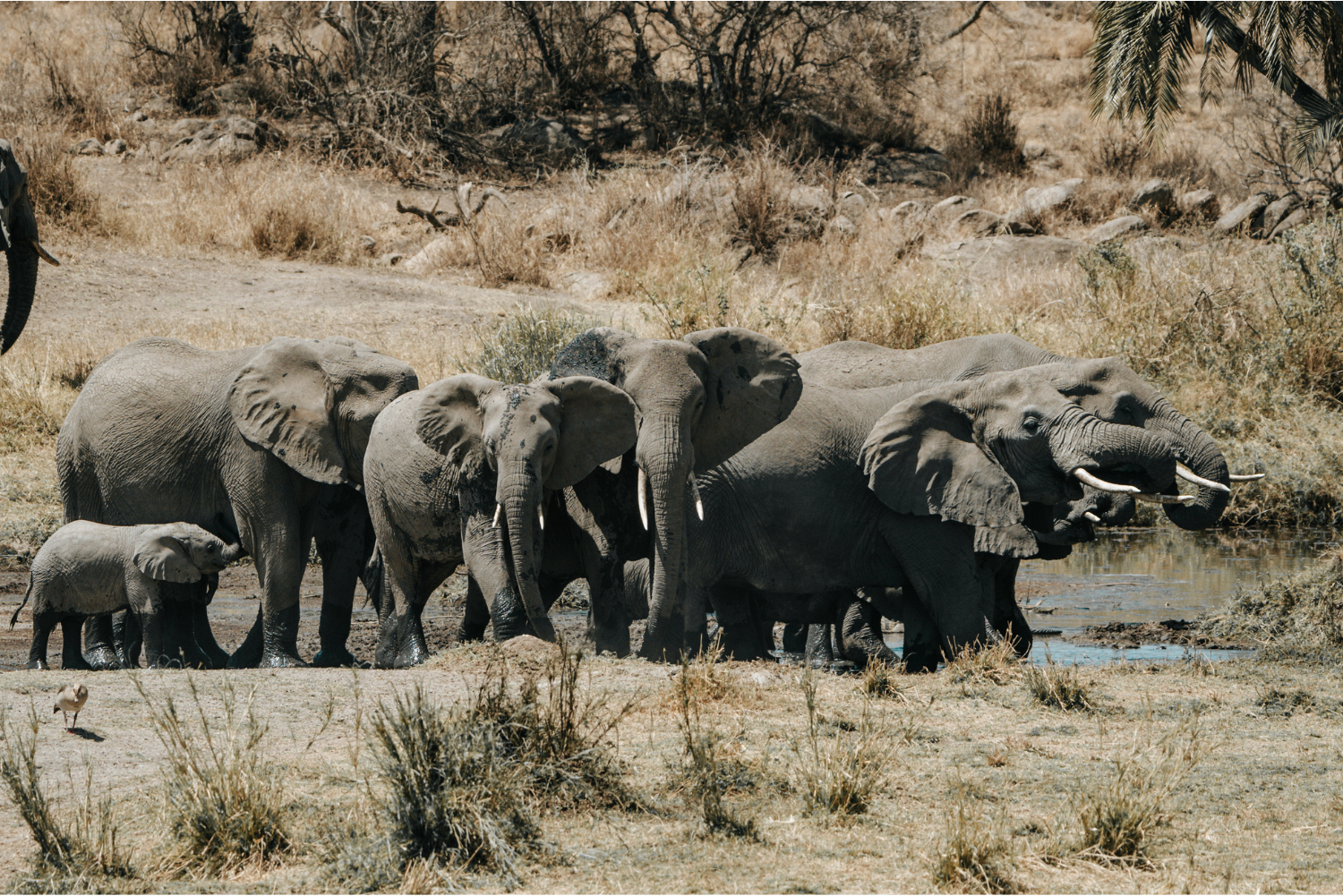
Elephants at Nimali Tarangire Lodge. Courtesy of Nimali Africa.
Later, visitors can walk to a nearby Maasai boma. Families sing and tell stories, sharing the challenges of living alongside elephants, which are prone to trampling crops and disturbing homes. Nimali buys supplies from these same villages, and Maasai families work with the lodge on conservation projects. Partnerships with the Randelien Wildlife Management Area, Honeyguide, and The Nature Conservancy also fund anti-poaching patrols and human–wildlife conflict mitigation. “It’s about protecting elephants and baobabs, but also building trust with the people who share this landscape,” Brar says.
As night falls, lanterns mark the paths to dinner served under the stars. The baobabs loom against the dark sky, their silhouettes lit by recycled-glass lamps, once wine bottles from the lodges. The empties are collected and sent to Arusha, where artisans at SANAA — a workshop employing people with disabilities — cut and polish the glass by hand. For Nimali, it is a way to reduce waste. For guests, it is a reminder that recycling and upcycling can also sustain livelihoods.
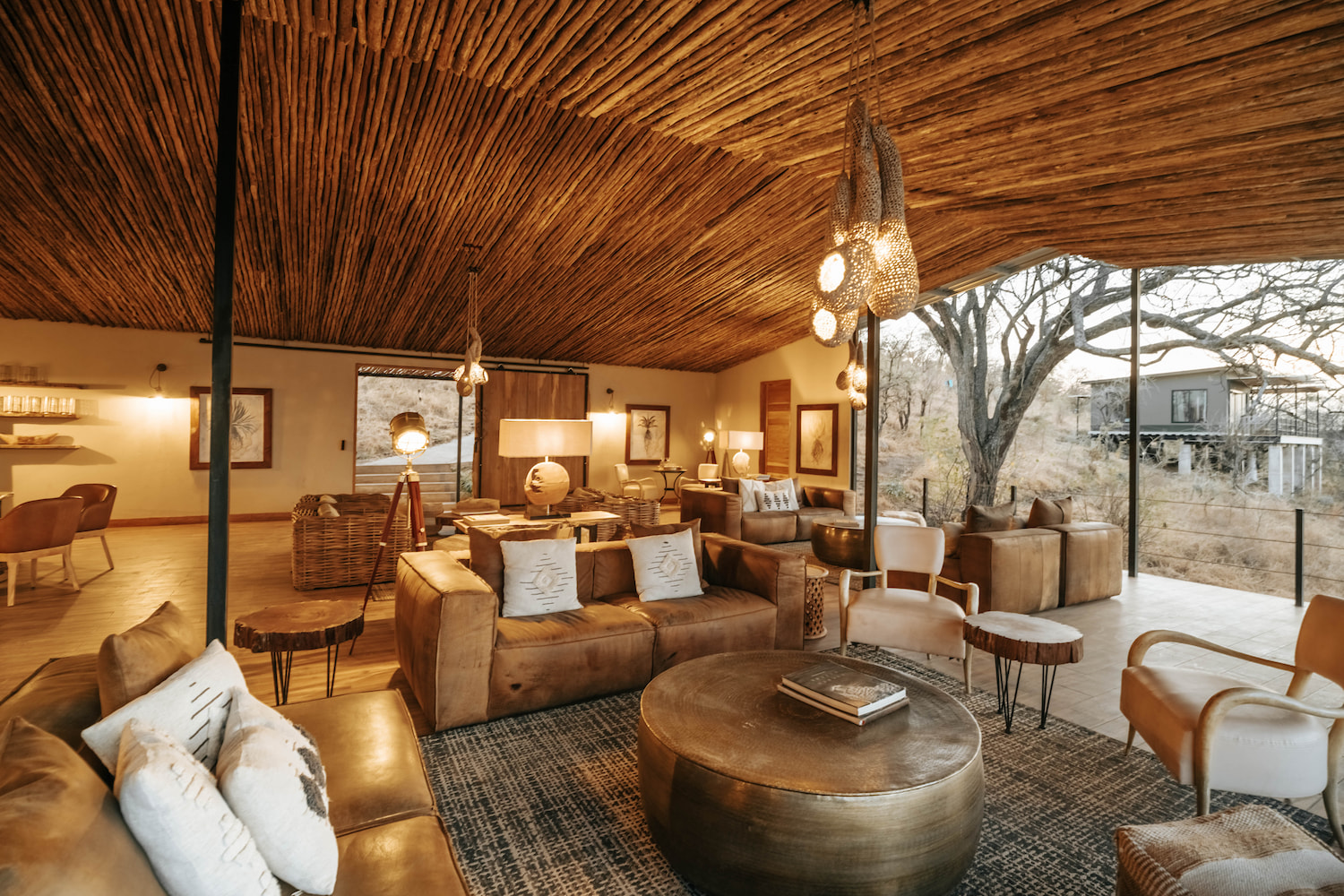
Serengeti Lodge. Courtesy of Nimali Africa.
Serengeti: Wide-Open Vistas
From Tarangire, the journey widens into the Serengeti, where the horizon runs unbroken and the migration shapes the land. “It is the soul of safari,” says Mann. “We wanted guests to feel immersed in one of Africa’s most iconic ecosystems while maintaining a sense of intimacy.”
At first light, staff deliver coffee or tea to each tent. Guests step into the cool air and climb into vehicles for the morning’s drive. Some head toward Makoma Hill, where lions doze in the grass and cheetahs scan from rocky outcrops. Others rise earlier still for a balloon flight, drifting above herds of wildebeest and zebra as the sun lifts across the plains.
Nimali guides are trained never to chase or crowd animals. “We want every encounter to feel natural, not staged,” says Brar. “That respect is part of conservation, too.”
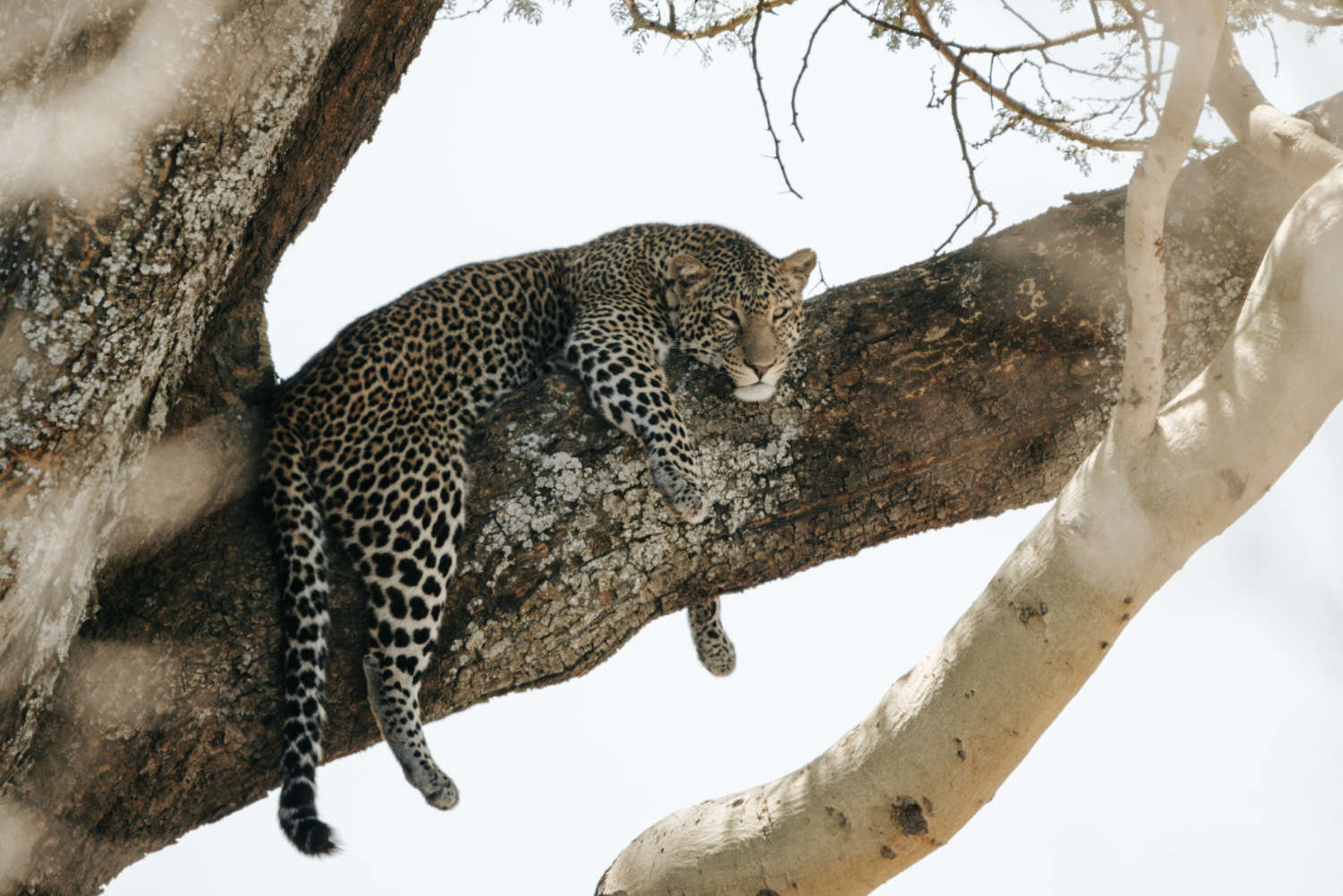
Leopard resting in a tree at Nimali Tarangire. Courtesy of Nimali Africa.
By mid-morning, the heat sets in. Guests return to camp for brunch and a rest — a swim in the pool, a massage in the shade, or time on the deck watching the plains shimmer. Evening drives follow the migration or seek out resident wildlife — lions, giraffes, elephants — before sundowners are poured in the glow of golden hour. At night, guests gather around the firepit, sharing stories of the day’s sightings.
The Serengeti lodge also works closely with communities on the park’s edge. Training programs provide livelihoods in guiding and handicrafts, reducing pressure on wildlife. Honey, coffee, and handcrafted décor are sourced directly from nearby villages, weaving local products into every guest experience.
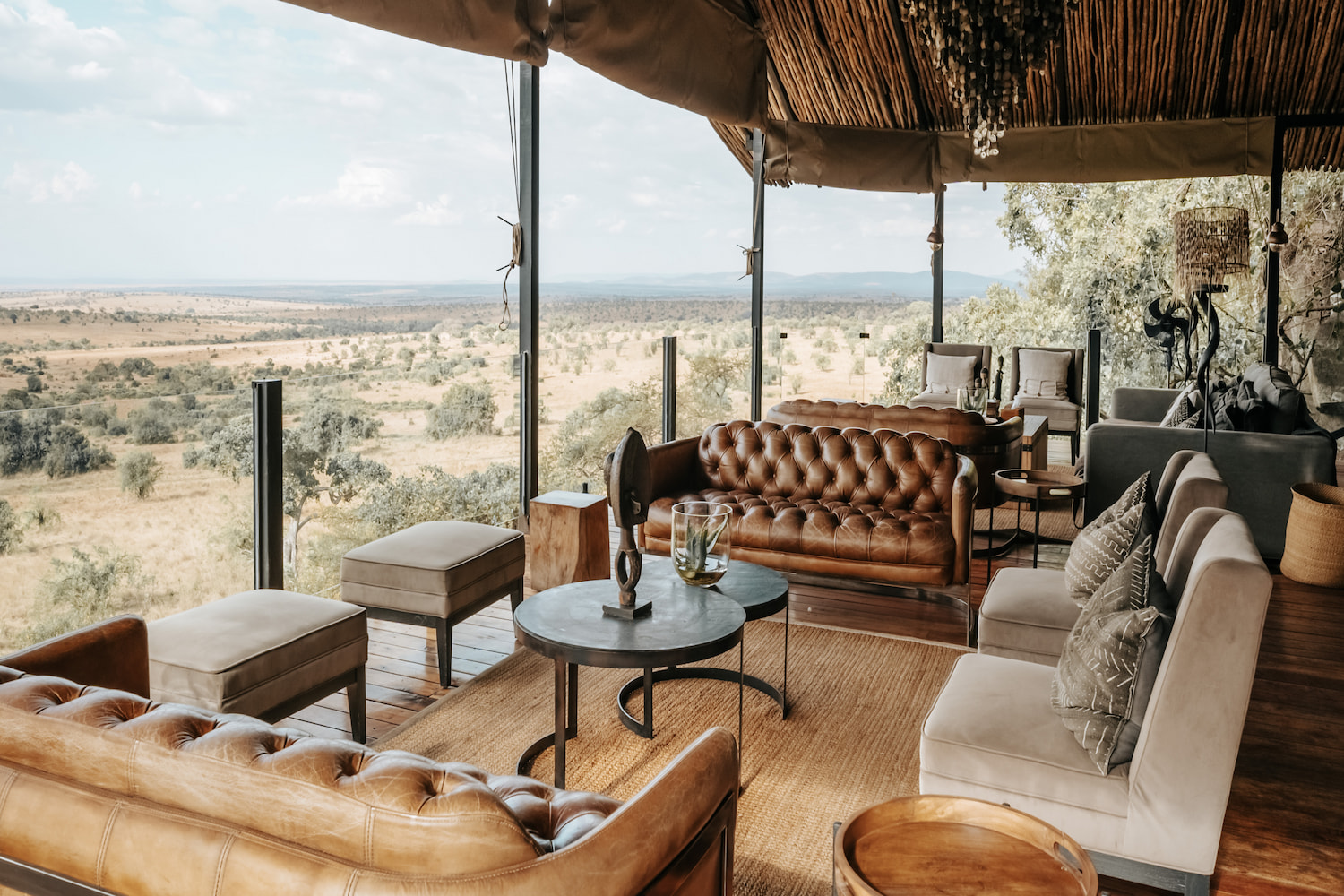
Mara Lodge. Courtesy of Nimali Africa.
Mara: At the River’s Edge
If Tarangire offers intimacy and Serengeti offers scale, Mara is about solitude. The lodge sits among rocky kopjes in the northern Serengeti, close to the Mara River. “This location offered the opportunity to protect an untouched landscape while extending the Nimali experience into a truly remote corner,” says Brar.
At dawn, guests drive toward the river. Wildebeest gather on the banks before surging into the current, crossings marked by spray and panic while predators wait nearby. Here, the spectacle unfolds without the crowds of the southern Serengeti.
By midday, camp falls still. Like the Serengeti property, guests can linger on private decks, plunge into the cool waters of the pool, or relax with a massage in the open air.

Wildebeest crossing Mara River. Courtesy of Nimali Africa.
Supplies are harder to come by this far from Arusha, so the lodge sources vegetables, fruit, and herbs for meals from nearby farmers. A filtration plant provides fresh water for the camp, and solar panels supply all energy; the lodge trains staff on the upkeep of both. “Distance is a challenge,” says Mann, “but it makes us self-sufficient — and it ties us closer to the communities here.”
Evening brings another drive. Lions stretch across the kopjes, elephants move through the valleys, and sundowners are set out on the rocks as the sky turns red. But sometimes the most powerful encounters happen without leaving camp. Once, a leopard left her cub among the boulders beside the lodge, returning hours later to collect it. The moment underlines Nimali’s founding principle: the lodges exist inside the landscape, not apart from it.
Together, Tarangire, Serengeti, and Mara form more than a safari circuit. They are a promise that travel can protect landscapes, sustain communities, and bring guests closer to the wild.
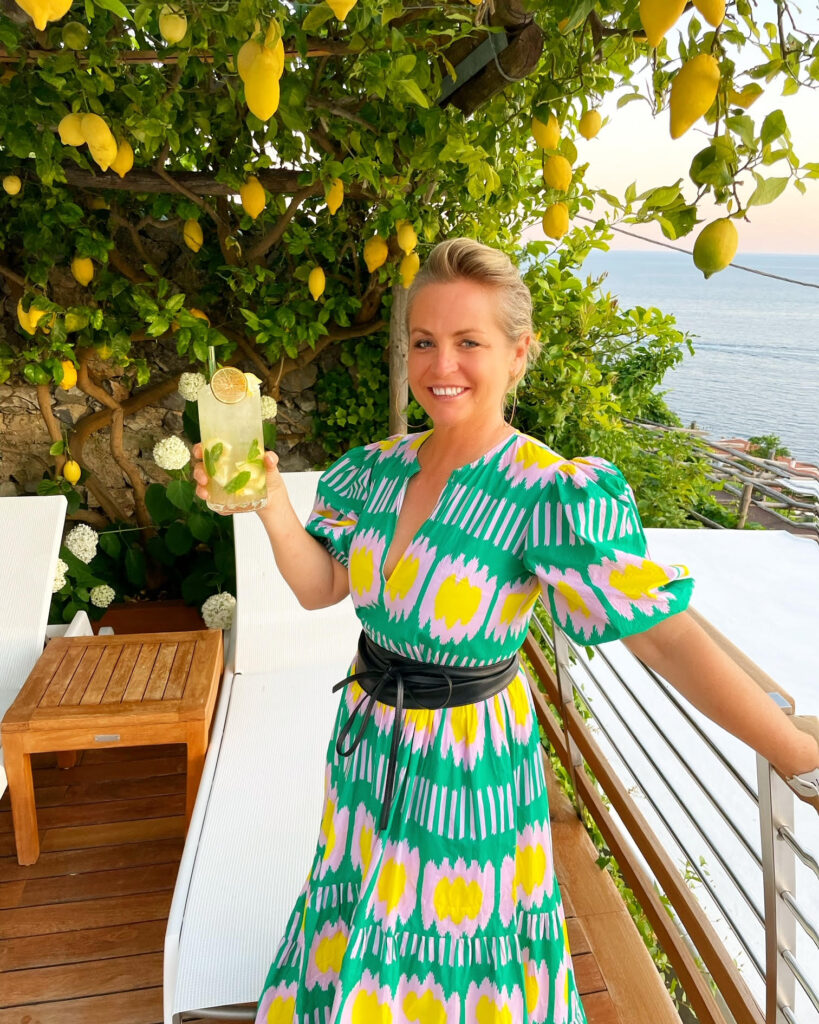
Founder and CEO of Azure Road, Lauren Mowery is a longtime wine, food, and travel writer. Mowery continues to serve on Decanter Magazine’s 12-strong US editorial team. Prior to joining Decanter, she spent five years as the travel editor at Wine Enthusiast. Mowery has earned accolades for her writing and photography, having contributed travel, drinks, food, and sustainability content to publications like Food & Wine, Forbes, Afar, The Independent, Saveur, Hemispheres, U.S. News & World Report, SCUBA Diving, Plate, Chef & Restaurant, Hotels Above Par, AAA, Fodors.com, Lonely Planet, USA Today, Men’s Journal, and Time Out, among others.
Pursuing her Master of Wine certification, she has also been a regular wine and spirits writer for Tasting Panel, Somm Journal, VinePair, Punch, and SevenFifty Daily. Mowery is a graduate of the University of Virginia and Fordham Law School, and she completed two wine harvests in South Africa.
Follow her on Instagram @AzureRoad and TikTok @AzureRoad
North Stars: Community Support, Energy Efficiency, Wildlife Ecosystems


